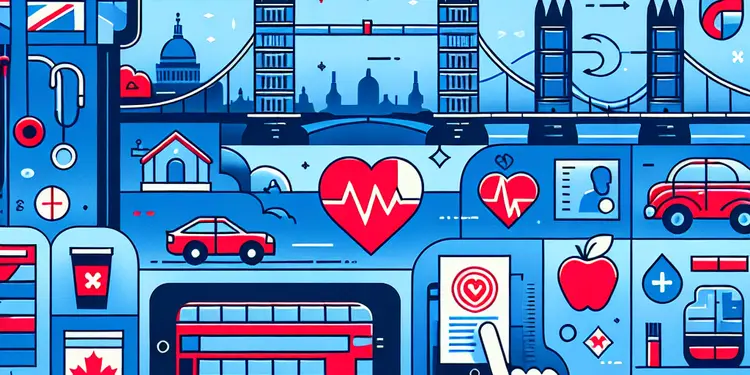
Find Help
More Items From Ergsy search
-
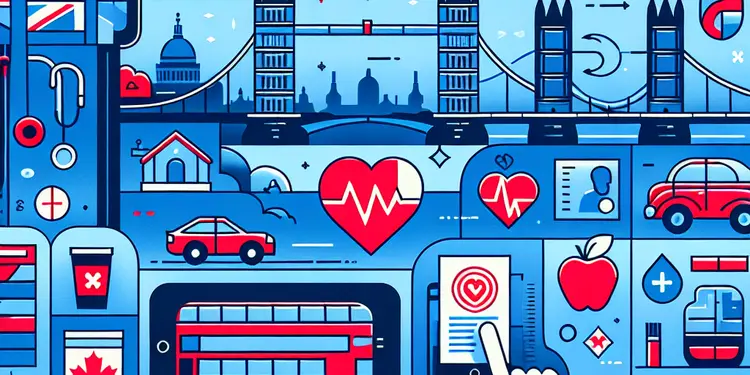
What are the risk factors for a heart attack?
Relevance: 100%
-

Is it possible to prevent a heart attack?
Relevance: 71%
-

What drugs are commonly prescribed to reduce the risk of heart attacks?
Relevance: 71%
-

Heart Attack Stories | NHS
Relevance: 68%
-

Heart Attack Stories | NHS
Relevance: 66%
-
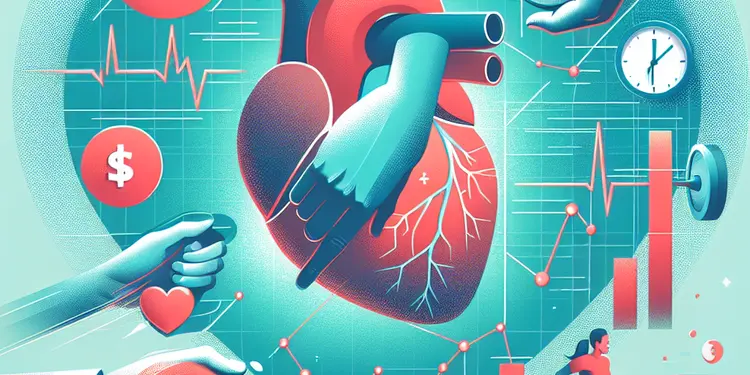
Can physical exertion trigger a heart attack?
Relevance: 65%
-

Can heart attack symptoms vary by age?
Relevance: 64%
-
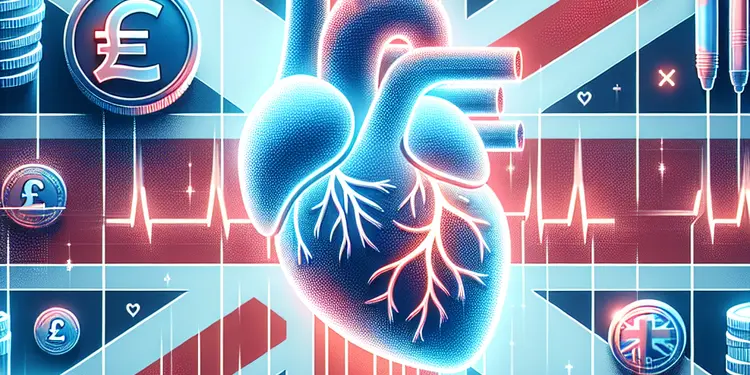
What are the long-term effects of a heart attack?
Relevance: 64%
-
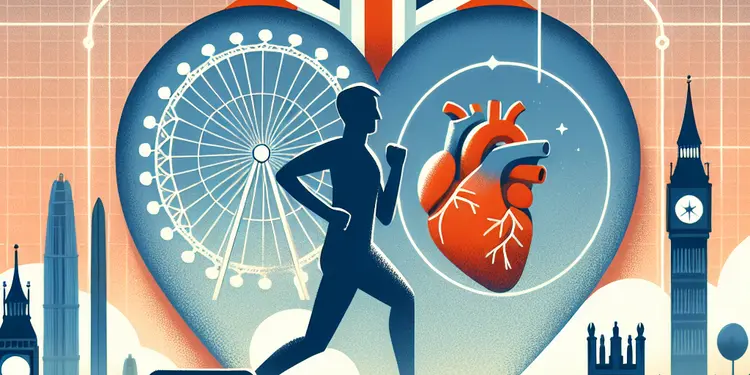
What should I do if I'm experiencing heart attack symptoms?
Relevance: 64%
-

Can diabetes medications also help reduce heart attack risk?
Relevance: 64%
-

Is it possible to have a heart attack without chest pain?
Relevance: 63%
-

Heart Attack Symptoms - Help Us Help You | NHS
Relevance: 61%
-

Do all patients need medication to prevent heart attacks and strokes?
Relevance: 61%
-

Are heart attack symptoms different for people with diabetes?
Relevance: 61%
-
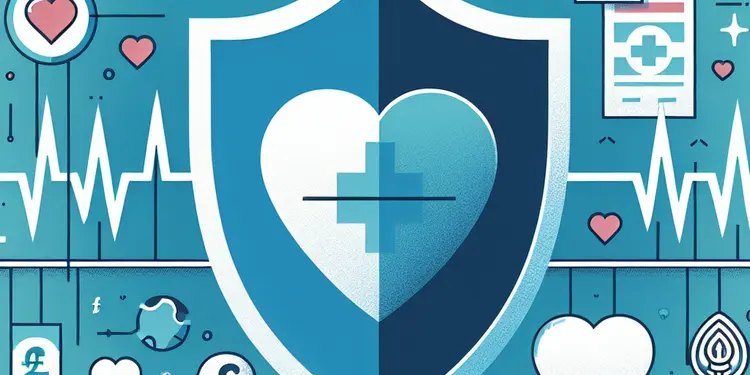
When should one start taking medication for heart attack prevention?
Relevance: 61%
-

Can women have different heart attack symptoms than men?
Relevance: 60%
-
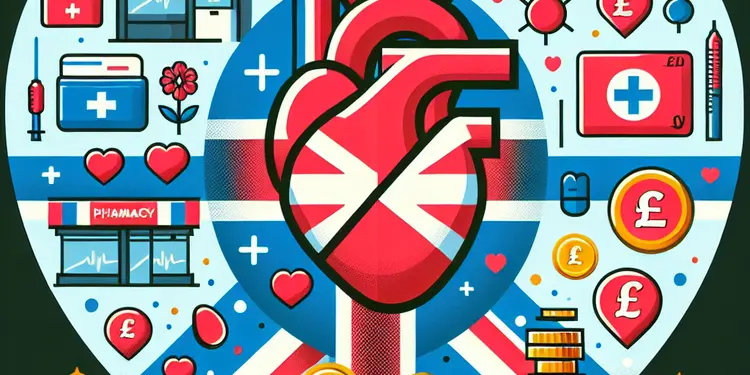
Do over-the-counter medications help in preventing heart attacks and strokes?
Relevance: 59%
-
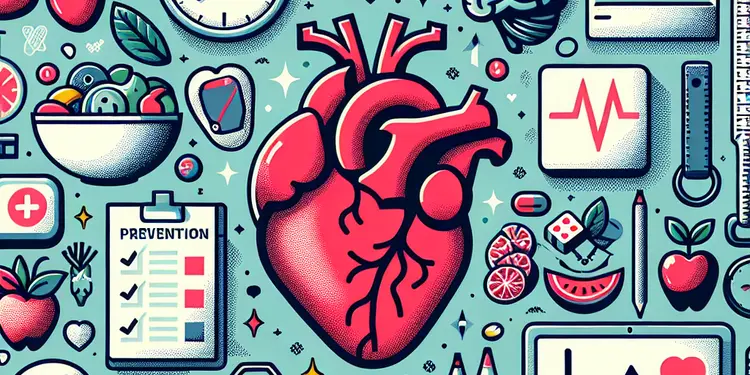
What is the role of lifestyle modification in heart attack and stroke prevention?
Relevance: 59%
-

How do beta-blockers contribute to heart attack prevention?
Relevance: 58%
-

Heart Attack Symptoms - Peter Dale (Tubes) | NHS
Relevance: 58%
-
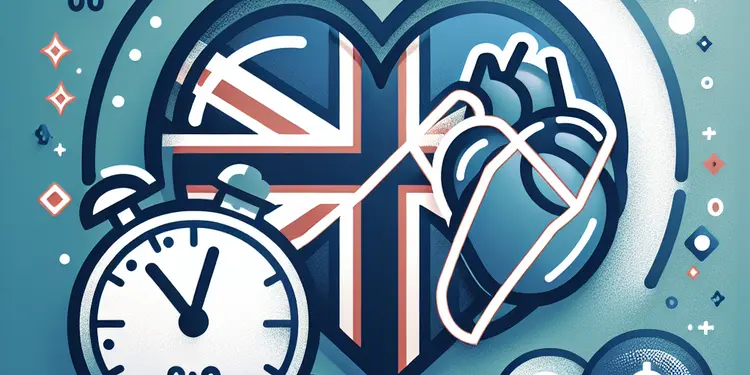
How long do heart attack symptoms last?
Relevance: 58%
-

Do calcium channel blockers help in preventing heart attacks?
Relevance: 58%
-

Heart attack care - Raigmore Hospital Inverness, NHS Highland
Relevance: 57%
-
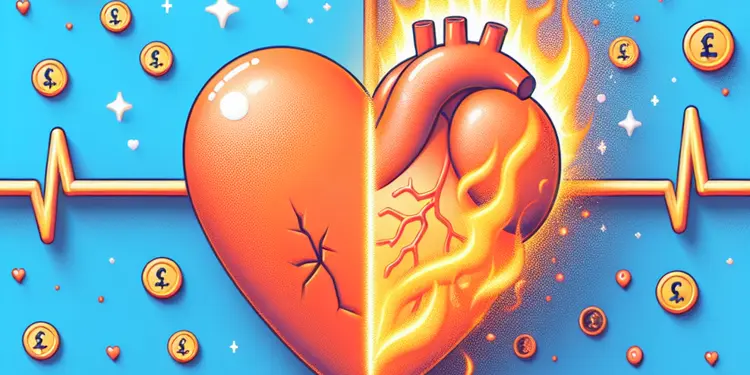
How can I differentiate between heartburn and a heart attack?
Relevance: 57%
-

Heart Attack Symptoms - Peter Dale (Tubes) | NHS - BSL version
Relevance: 56%
-

What is the role of PCSK9 inhibitors in heart attack prevention?
Relevance: 52%
-
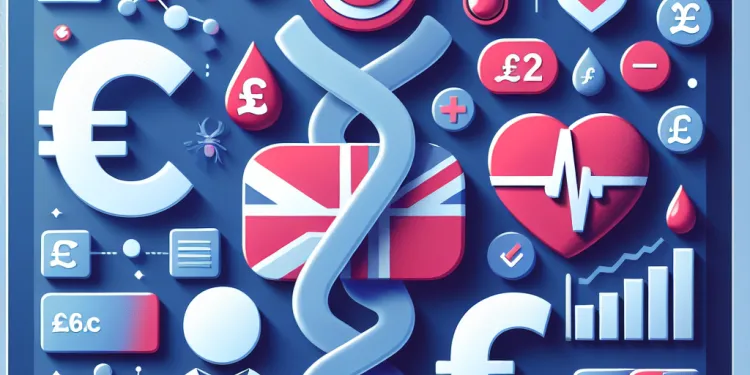
What are the risk factors for thrombosis?
Relevance: 49%
-
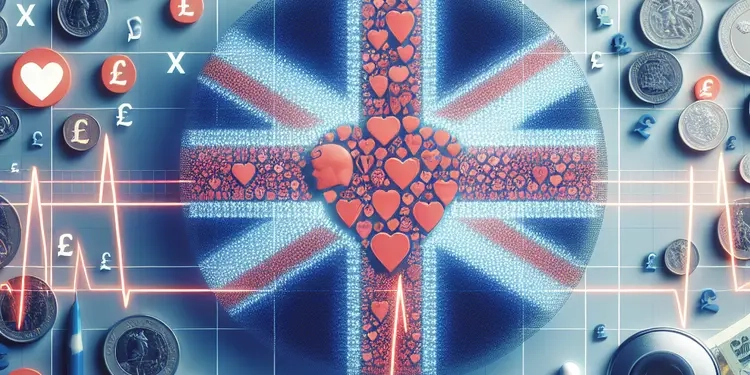
What drugs can reduce the risk of heart-attack and strokes?
Relevance: 46%
-

What causes heart failure?
Relevance: 45%
-
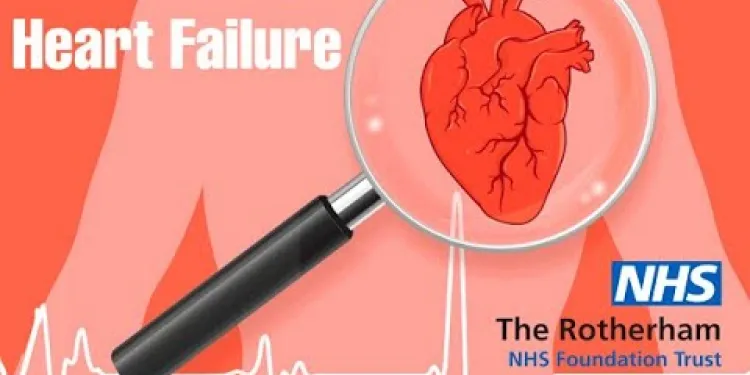
Heart Failure : When the heart becomes stiff?
Relevance: 45%
-

Heart Failure : The normal heart
Relevance: 43%
-

Heart stents
Relevance: 42%
-
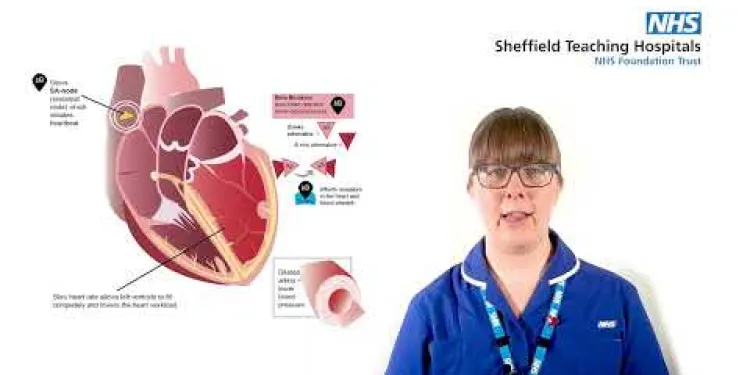
Medicines of the heart
Relevance: 42%
-
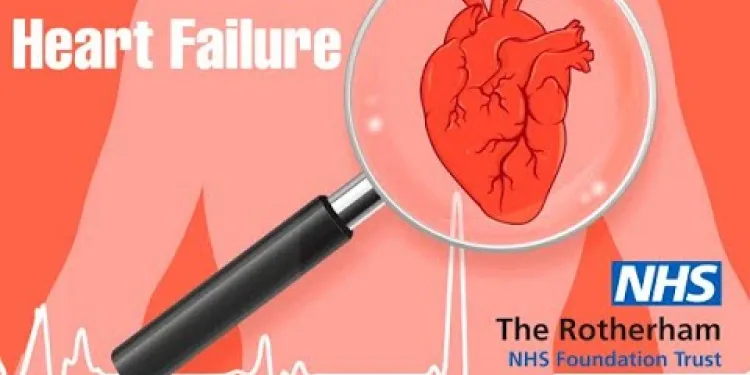
Heart Failure : Heart failure that cannot pump
Relevance: 42%
-
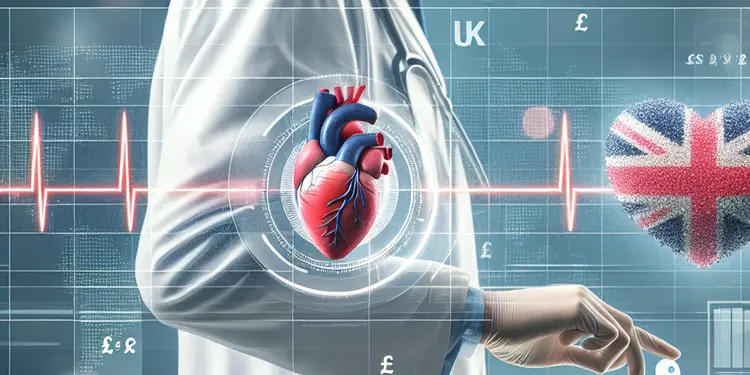
How is heart failure diagnosed?
Relevance: 41%
-
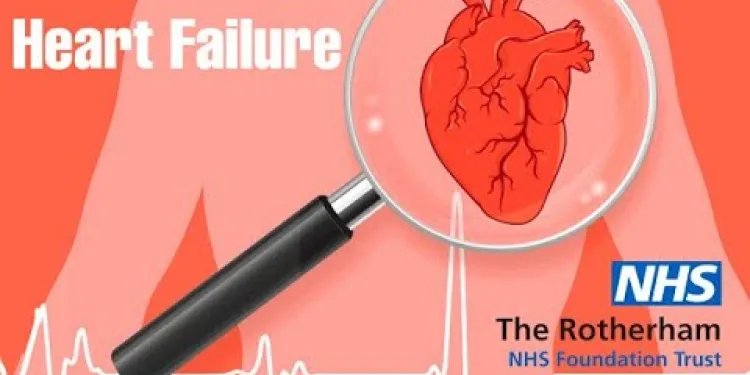
Heart Failure : What is heart failure?
Relevance: 41%
-
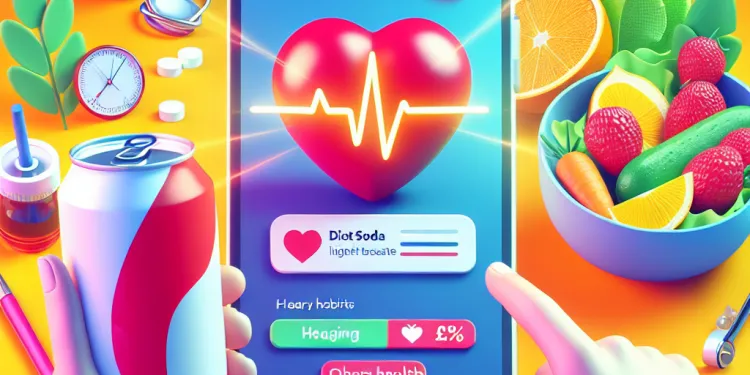
New Study Links Diet Soda to Increased Risk of Heart Disease
Relevance: 40%
-
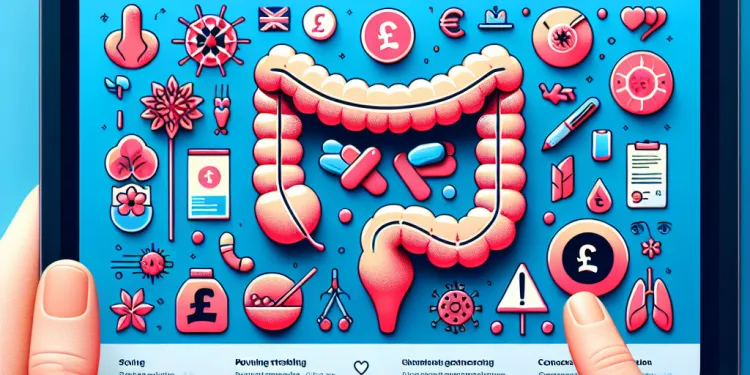
What are the risk factors for bowel cancer?
Relevance: 40%
-

Are there any risk factors for developing hypotony?
Relevance: 40%
-

Will a heart bypass make me live longer?
Relevance: 39%
What is a Heart Attack?
A heart attack, also known as a myocardial infarction, occurs when the flow of oxygen-rich blood to a part of the heart muscle is blocked. Without oxygen, the affected heart muscle begins to die. Understanding the risk factors can help to prevent this life-threatening condition.
Understanding Risk Factors
Several risk factors contribute to the likelihood of experiencing a heart attack. Some of these are beyond control, while others can be managed or moderated through lifestyle changes and medical interventions.
Age and Gender
Age is a significant risk factor, as heart attacks are more likely to occur as people get older. In men, the risk increases after the age of 45, while in women, the risk increases after the age of 55. Additionally, men generally have a higher risk of experiencing a heart attack than women, though the risk for women becomes comparable post-menopause.
Family History
A family history of heart disease can elevate the risk of a heart attack. If a parent or sibling developed heart disease at an early age (before 55 for men and before 65 for women), this increases the likelihood of an individual experiencing similar issues.
High Blood Pressure
High blood pressure, or hypertension, forces the heart to work harder than normal, which can damage arteries and increase the risk of heart attacks. Monitoring and controlling blood pressure through diet, exercise, and medication is vital for managing this risk.
High Cholesterol and Triglyceride Levels
High levels of cholesterol and triglycerides in the blood can lead to the build-up of plaques in the coronary arteries, narrowing them and contributing to heart attack risk. A healthy diet and medication can help manage these levels.
Smoking
Smoking is a major risk factor for heart attacks. It damages the lining of arteries, promotes the build-up of plaque, and increases blood pressure. Quitting smoking is one of the most effective ways to reduce heart attack risk.
Diabetes
Diabetes, particularly type 2, significantly increases the risk of a heart attack. High blood sugar from diabetes can damage blood vessels and nerves that control the heart. Effective management of blood sugar levels through diet, exercise, and medication can mitigate this risk.
Obesity and Physical Inactivity
Being overweight or obese increases the risk of heart attacks. Excess weight can worsen other risk factors like high blood pressure, diabetes, and cholesterol levels. Regular physical activity helps to maintain a healthy weight and arterially beneficial effects.
Conclusion
Understanding and addressing these risk factors can significantly lower the chances of having a heart attack. Leading a healthy lifestyle, undergoing regular health check-ups, and adhering to medical advice are crucial steps in heart attack prevention.
What is a Heart Attack?
A heart attack happens when blood full of oxygen can't get to part of the heart. This part of the heart muscle starts to die without the oxygen. Knowing what can cause a heart attack can help prevent it.
Understanding Risk Factors
Risk factors are things that make it more likely to have a heart attack. Some risk factors we can't change, but others we can control with healthy habits and medicine.
Age and Gender
As people get older, the chance of having a heart attack goes up. For men, this risk goes up after they are 45 years old. For women, the risk goes up after they are 55 years old. Men have a higher chance of heart attacks than women. But after women stop having periods (menopause), their risk is similar to men.
Family History
If heart disease runs in your family, your risk is higher. If a parent or brother/sister had heart disease early (before age 55 for men or 65 for women), your risk goes up too.
High Blood Pressure
High blood pressure makes the heart work too hard, which can be bad for arteries and increase heart attack risk. Checking your blood pressure and keeping it healthy with good food, exercise, and medicine is very important.
High Cholesterol and Triglyceride Levels
Having a lot of cholesterol and triglycerides (types of fat) in the blood can clog the heart's blood vessels. This can lead to heart attacks. Eating healthy and medicine can help lower these levels.
Smoking
Smoking is very bad for the heart. It can hurt the arteries and raise blood pressure. Quitting smoking is a great way to lower the risk of a heart attack.
Diabetes
Having diabetes, especially type 2, increases the risk of a heart attack. High blood sugar can harm blood vessels and heart control nerves. Keeping blood sugar in check with good food, exercise, and medicine is key.
Obesity and Physical Inactivity
Being very overweight raises heart attack risk. It can make other problems like high blood pressure and diabetes worse. Exercising helps keep a healthy weight and keep the heart strong.
Conclusion
Knowing about these risks and dealing with them can greatly reduce heart attack chances. Living healthy, seeing the doctor regularly, and following medical advice are important steps to stop heart attacks.
Frequently Asked Questions
What is a heart attack?
A heart attack occurs when the flow of blood to the heart is blocked, often by a build-up of fat, cholesterol, and other substances, which form a plaque in the arteries that feed the heart.
What are common risk factors for a heart attack?
Common risk factors include high blood pressure, high cholesterol, smoking, obesity, physical inactivity, diabetes, and excessive alcohol consumption.
How does high blood pressure contribute to heart attacks?
High blood pressure can damage arteries, making them more susceptible to the narrowing and blockage that can lead to a heart attack.
Can high cholesterol lead to heart attacks?
Yes, high levels of LDL cholesterol can lead to the buildup of plaques in arteries, increasing the risk of heart attack.
Is smoking a risk factor for a heart attack?
Smoking damages the lining of arteries, leading to atherosclerosis and increasing the risk of heart attacks.
How does obesity affect heart attack risk?
Obesity can lead to high blood pressure, diabetes, and high cholesterol, all of which are risk factors for heart attacks.
What role does physical inactivity play in heart attack risk?
Physical inactivity contributes to obesity and can elevate the risk of other conditions such as high blood pressure which increase heart attack risk.
Can stress increase the risk of a heart attack?
Yes, chronic stress can contribute to heart disease risk factors like high blood pressure and unhealthy eating habits.
Is age a risk factor for heart attacks?
Yes, men age 45 and older and women age 55 and older have a higher risk of heart attack.
How does family history influence heart attack risk?
A family history of heart disease increases your risk, especially if a parent had a heart attack at an early age.
Does diabetes increase heart attack risk?
Yes, diabetes increases your risk of heart attack by contributing to the development of atherosclerosis and other cardiovascular conditions.
Is gender a factor in heart attack risk?
While men are generally at higher risk than women, women’s risk increases and can surpass men’s after menopause.
How does alcohol consumption affect heart attack risk?
Excessive alcohol use can lead to high blood pressure, heart failure, and even stroke.
Does diet impact heart attack risk?
Yes, a diet high in saturated fats, trans fats, and cholesterol can raise blood cholesterol levels and increase heart attack risk.
Can sleep apnea be a risk factor for heart attacks?
Yes, obstructive sleep apnea can lead to high blood pressure, heart failure, and arrhythmias, increasing heart attack risk.
Are there any ethnic differences in heart attack risk?
Yes, certain ethnic groups like African Americans, Mexican Americans, and Native Americans may have higher risks due to higher rates of risk factors.
How does depression affect heart attack risk?
Depression can lead to behaviors and habits that increase heart attack risk, such as smoking, poor diet, and physical inactivity.
Can medication influence heart attack risk?
Certain medications, including those that raise blood pressure or cholesterol, may elevate heart attack risk. It's important to discuss options with your doctor.
Does having an inflammatory condition affect heart attack risk?
Yes, inflammatory conditions like rheumatoid arthritis or lupus can increase heart attack risk by contributing to artery plaque buildup.
What role does diet play in preventing heart attacks?
A healthy diet rich in fruits, vegetables, whole grains, and lean protein can help lower risks by managing weight and reducing blood pressure and cholesterol.
What is a heart attack?
A heart attack happens when the heart stops getting enough blood.
The blood carries oxygen to the heart.
Without oxygen, the heart can get hurt.
Signs of a heart attack can be chest pain, feeling dizzy, or feeling very tired.
If you think someone is having a heart attack, call for help right away.
For more support, you can use pictures or videos to learn about the heart.
A heart attack happens when blood can't get to the heart. This is because something is blocking it. Things like fat and cholesterol can build up and make a blockage called plaque in the tubes (arteries) that give the heart blood.
What can make a heart attack more likely?
Here are some things that can make you sick:
- If your blood pressure is too high.
- If your cholesterol is too high.
- If you smoke a lot.
- If you are very overweight.
- If you don't move around much.
- If you have diabetes.
- If you drink too much alcohol.
Try using simple tools like taking deep breaths or asking for help if you need it.
How does high blood pressure cause heart attacks?
High blood pressure makes the heart work harder. This can damage the heart. When the heart gets too damaged, it can cause a heart attack.
Here are ways to help understand better:
- Ask someone you trust to explain it.
- Use pictures or videos to see how the heart works.
- Take your time and don't rush.
High blood pressure can hurt blood vessels. This can make them narrow and block. When this happens, it can cause a heart attack.
Can having too much cholesterol cause heart attacks?
Yes, when you have too much LDL cholesterol, it can make a sticky stuff that clogs your blood tubes, called arteries. This can make it more likely for you to have a heart attack.
Can smoking cause a heart attack?
Yes, smoking can hurt your heart. It can make it hard for blood to flow. This can cause a heart attack.
It is good to stop smoking. This can help keep your heart healthy.
If you want to stop smoking, you can ask for help. Doctors and nurses can help you.
There are tools that can help too. Like nicotine patches.
Smoking hurts the inside of blood tubes called arteries. This can block them and make heart problems more likely.
How does being very overweight affect the chance of a heart attack?
Being very overweight can make it more likely to have a heart attack.
Here are some tips to help understand:
- Ask a grown-up to explain big words.
- Use pictures to learn about the heart.
- Watch videos online about staying healthy.
Being very overweight can cause health problems. It can make your blood pressure high. It can give you diabetes. It can make your cholesterol high. These problems can lead to a heart attack.
To learn more, you can ask a doctor or use online tools that make reading easy. Look for apps or websites that read out loud or let you change text size.
How does not moving your body affect the chance of a heart attack?
If you do not move your body enough, it can make your heart sick. This means you might have a higher chance of a heart attack.
Moving your body keeps your heart strong. Try to walk, run, or play to stay healthy.
To help understand, use drawings or listen with an audio helper.
Not moving your body enough can make you gain too much weight. It can also lead to other health problems like high blood pressure. High blood pressure means your heart has to work too hard. This can make you more likely to have a heart attack.
Can stress make it more likely to have a heart attack?
Stress is when you feel worried or upset. Too much stress is not good for your heart. It can make your heart work too hard.
If you feel stressed, try to relax. You can take deep breaths or go for a walk. Talking to someone you trust can also help.
Remember, taking care of your feelings is important for your heart's health.
Yes, being stressed for a long time can make your heart unhealthy. It can make your blood pressure high and cause you to eat less healthy food.
Can getting older cause heart problems?
Men who are 45 years old or more and women who are 55 years old or more have a bigger chance of having a heart attack.
Can family history affect your chance of having a heart attack?
Your family history means the health problems your family members have had. If your family has had heart problems, your chance of having a heart attack might be higher.
To help you understand, you can use pictures and talk with a doctor or nurse. They can explain things with simple words. You can also write down questions to ask them.
If people in your family have heart problems, like heart attacks, this makes your chances higher too. This is especially true if your mom or dad had a heart attack when they were young.
Does having diabetes make a heart attack more likely?
Yes, if you have diabetes, it can make it more likely for you to have a heart attack. This is because diabetes can cause problems with your heart and blood vessels.
Can being a man or a woman change your chance of a heart attack?
Men usually have a higher risk than women. But after women go through menopause, their risk can go up and become higher than men's.
How does drinking alcohol change the chance of a heart attack?
Drinking alcohol can be bad for your heart. It can make your heart weak. This means you might have a higher chance of having a heart attack. A heart attack happens when your heart can’t get enough blood.
It is good to know how much alcohol you drink. Drinking less alcohol can help your heart stay healthy.
If you need help to drink less, you can talk to a doctor or a nurse. They can give you advice. You can also keep a diary to write down how much you drink every day.
Drinking too much alcohol can make you really sick. It can make your blood pressure go up. It can hurt your heart and cause it to not work right. It can even cause a stroke, which is very serious.
If you find it hard to read or understand, you can try using tools that read text out loud for you.
Can what you eat affect your chance of having a heart attack?
Your food choices can change how healthy your heart is. Good food may help you stay healthy. Bad food can make your heart sick.
Here are some tips:
- Eat more fruits and vegetables.
- Choose whole grains like brown bread instead of white bread.
- Eat less fried and fatty foods.
Ask a friend, family member, or teacher if you need help understanding or making good food choices.
Eating foods with lots of bad fats can make your blood cholesterol go up. This can make it more likely for your heart to get sick.
Can Sleep Apnea Cause Heart Attacks?
Sleep apnea is a condition where you stop breathing for short times while sleeping.
It can make the heart work harder. This might increase the chance of a heart attack.
If you think you have sleep apnea, tell a doctor. They can help.
Here are some tips:
- Use a sleep machine to help you breathe at night. It is called a CPAP machine.
- Keep a sleep diary to track your sleep patterns.
- Ask a family member or friend for support.
Yes, a problem called sleep apnea can make your blood pressure go up. It can also cause heart problems. This makes it more likely to have a heart attack.
Tools that can help you understand better:
- Use a dictionary to find out what big words mean.
- Ask an adult to help explain.
- Watch a video about sleep apnea.
Do different ethnic groups have different heart attack risks?
Yes, some groups of people, like African Americans, Mexican Americans, and Native Americans, can have higher risks. This is because they might have more things that make the risk higher.
How does feeling very sad affect having a heart attack?
Feeling very sad for a long time is called depression. It can make your heart sick too. This can make it easier to have a heart attack.
If you are feeling sad for many days, tell a grown-up you trust. Talking to a doctor can help. They have ideas to make you feel better.
There are things to help like:
- Talking with someone who can listen
- Doing fun and happy activities
- Taking walks or moving your body
- Eating healthy foods
It is important to ask for help, and people want to help you feel better.
Feeling very sad can make some people do things that are not healthy for their hearts. They might start smoking, eat bad foods, or not move around much.
Can medicine affect the chance of a heart attack?
Some medicines can make your heart work too hard. This can make it easier to have a heart attack. Talk to your doctor about this.
Can having a swelling problem increase heart attack risk?
Some people have a health problem that makes parts of their body swell up. This is called an inflammatory condition.
If you have this problem, it might make it easier to have a heart attack.
You can try these tips to help understand more:
- Ask your doctor for simple explanations.
- Use pictures or videos to learn about heart health.
- Talk to someone you trust for help.
Yes, having health problems like rheumatoid arthritis or lupus can make a heart attack more likely. These problems can cause stuff to build up in your blood tubes, which is bad for your heart.
How does food help stop heart attacks?
Eating healthy food can help keep your heart strong.
If you eat lots of fruits, vegetables, and whole grains, your heart can stay healthy.
Try to eat less junk food, like chips and candy.
You can use pictures to help learn about healthy food.
Ask someone you trust if you need help understanding what foods are good for your heart.
Eating healthy can help you stay well. Try to eat lots of fruits and vegetables. Choose foods like whole grains and lean proteins too. This can help keep your weight, blood pressure, and cholesterol healthy.
Useful Links
This website offers general information and is not a substitute for professional advice.
Always seek guidance from qualified professionals.
If you have any medical concerns or need urgent help, contact a healthcare professional or emergency services immediately.
Some of this content was generated with AI assistance. We’ve done our best to keep it accurate, helpful, and human-friendly.
- Ergsy carfully checks the information in the videos we provide here.
- Videos shown by Youtube after a video has completed, have NOT been reviewed by ERGSY.
- To view, click the arrow in centre of video.
- Most of the videos you find here will have subtitles and/or closed captions available.
- You may need to turn these on, and choose your preferred language.
- Go to the video you'd like to watch.
- If closed captions (CC) are available, settings will be visible on the bottom right of the video player.
- To turn on Captions, click settings .
- To turn off Captions, click settings again.
More Items From Ergsy search
-

What are the risk factors for a heart attack?
Relevance: 100%
-

Is it possible to prevent a heart attack?
Relevance: 71%
-

What drugs are commonly prescribed to reduce the risk of heart attacks?
Relevance: 71%
-

Heart Attack Stories | NHS
Relevance: 68%
-

Heart Attack Stories | NHS
Relevance: 66%
-

Can physical exertion trigger a heart attack?
Relevance: 65%
-

Can heart attack symptoms vary by age?
Relevance: 64%
-

What are the long-term effects of a heart attack?
Relevance: 64%
-

What should I do if I'm experiencing heart attack symptoms?
Relevance: 64%
-

Can diabetes medications also help reduce heart attack risk?
Relevance: 64%
-

Is it possible to have a heart attack without chest pain?
Relevance: 63%
-

Heart Attack Symptoms - Help Us Help You | NHS
Relevance: 61%
-

Do all patients need medication to prevent heart attacks and strokes?
Relevance: 61%
-

Are heart attack symptoms different for people with diabetes?
Relevance: 61%
-

When should one start taking medication for heart attack prevention?
Relevance: 61%
-

Can women have different heart attack symptoms than men?
Relevance: 60%
-

Do over-the-counter medications help in preventing heart attacks and strokes?
Relevance: 59%
-

What is the role of lifestyle modification in heart attack and stroke prevention?
Relevance: 59%
-

How do beta-blockers contribute to heart attack prevention?
Relevance: 58%
-

Heart Attack Symptoms - Peter Dale (Tubes) | NHS
Relevance: 58%
-

How long do heart attack symptoms last?
Relevance: 58%
-

Do calcium channel blockers help in preventing heart attacks?
Relevance: 58%
-

Heart attack care - Raigmore Hospital Inverness, NHS Highland
Relevance: 57%
-

How can I differentiate between heartburn and a heart attack?
Relevance: 57%
-

Heart Attack Symptoms - Peter Dale (Tubes) | NHS - BSL version
Relevance: 56%
-

What is the role of PCSK9 inhibitors in heart attack prevention?
Relevance: 52%
-

What are the risk factors for thrombosis?
Relevance: 49%
-

What drugs can reduce the risk of heart-attack and strokes?
Relevance: 46%
-

What causes heart failure?
Relevance: 45%
-

Heart Failure : When the heart becomes stiff?
Relevance: 45%
-

Heart Failure : The normal heart
Relevance: 43%
-

Heart stents
Relevance: 42%
-

Medicines of the heart
Relevance: 42%
-

Heart Failure : Heart failure that cannot pump
Relevance: 42%
-

How is heart failure diagnosed?
Relevance: 41%
-

Heart Failure : What is heart failure?
Relevance: 41%
-

New Study Links Diet Soda to Increased Risk of Heart Disease
Relevance: 40%
-

What are the risk factors for bowel cancer?
Relevance: 40%
-

Are there any risk factors for developing hypotony?
Relevance: 40%
-

Will a heart bypass make me live longer?
Relevance: 39%


